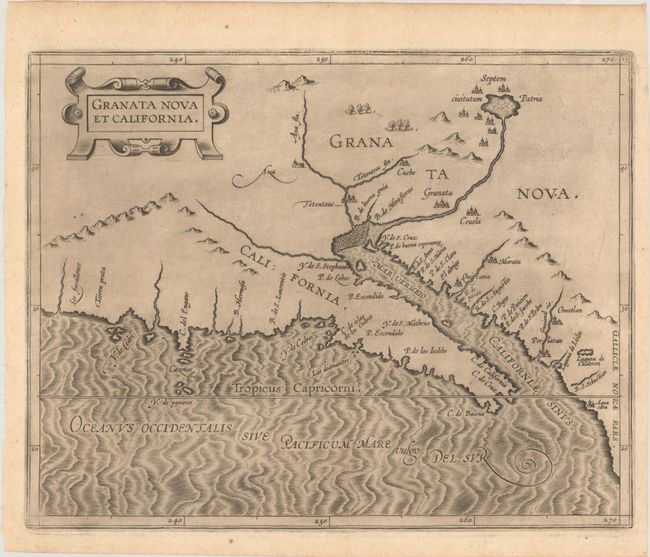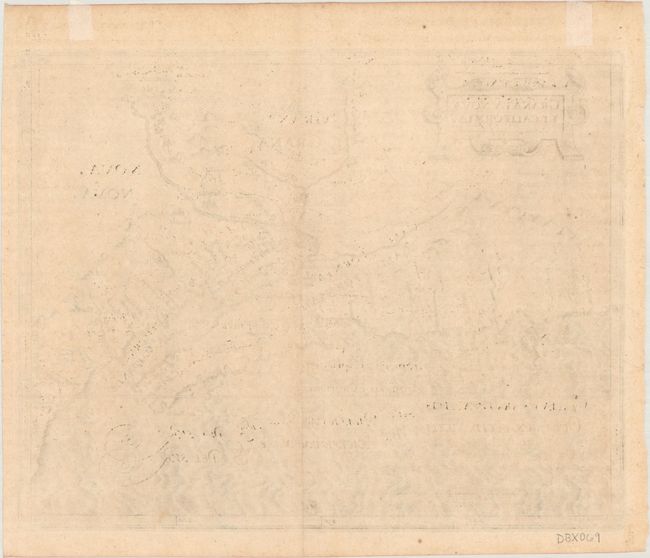Catalog Archive


Auction 196, Lot 283
First Printed Map to Focus on California and the Southwest
"Granata Nova et California", Wytfliet, Cornelis
Subject: Southwestern United States & Mexico
Period: 1597 (circa)
Publication: Descriptionis Ptolemaicae Augmentum
Color: Black & White
Size:
11.4 x 9.1 inches
29 x 23.1 cm
Download High Resolution Image
(or just click on image to launch the Zoom viewer)
(or just click on image to launch the Zoom viewer)

